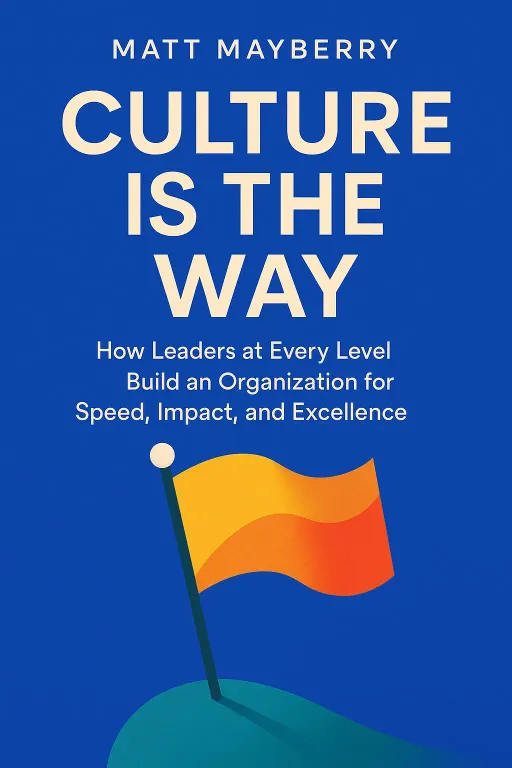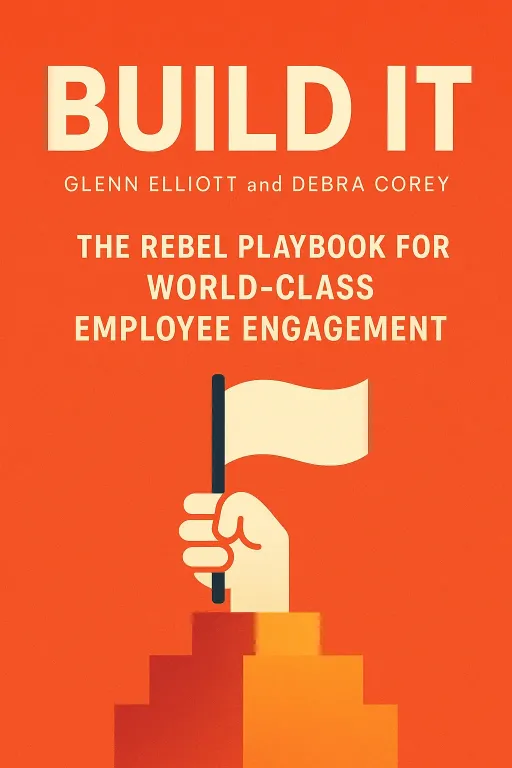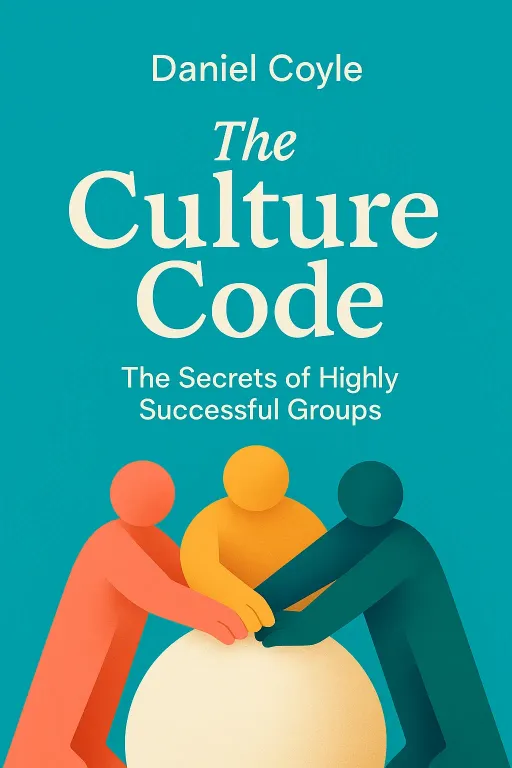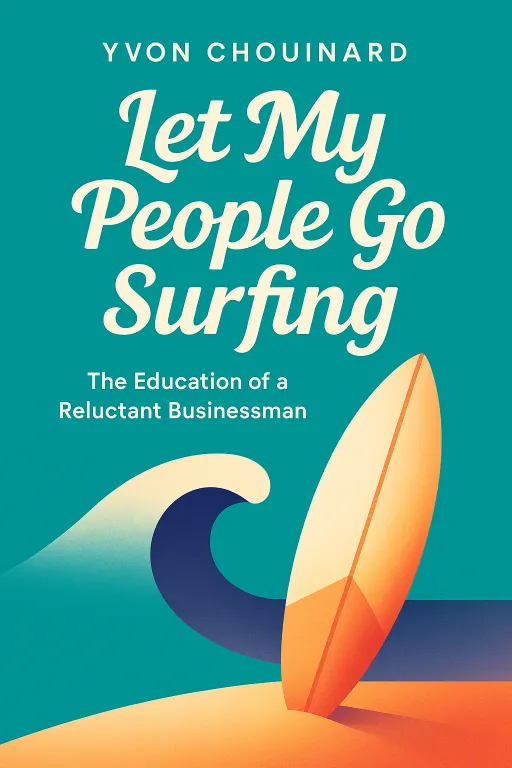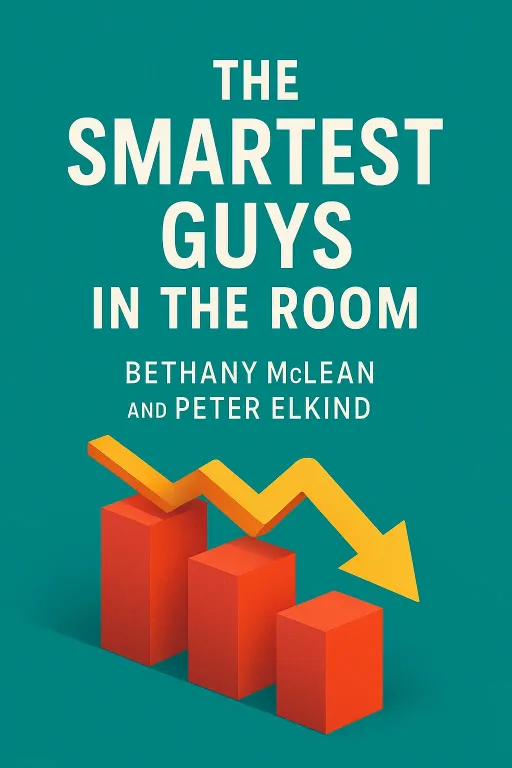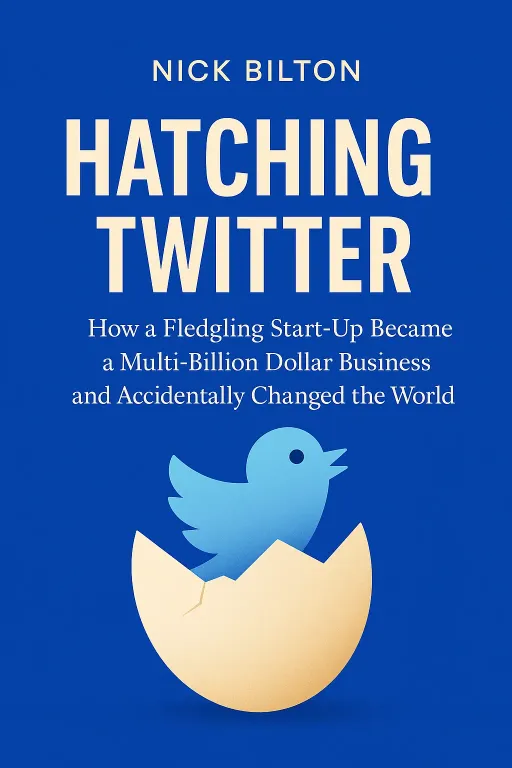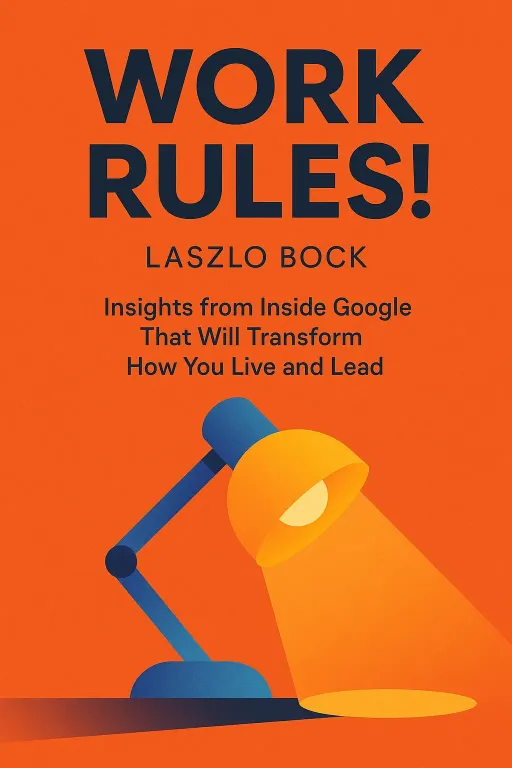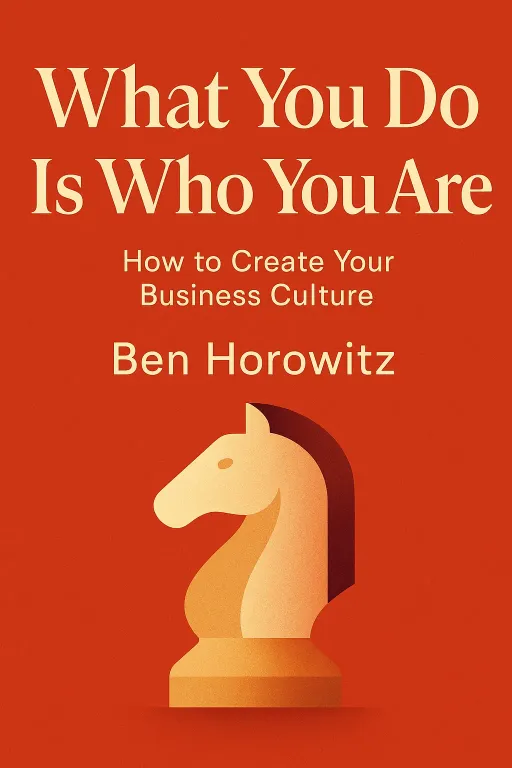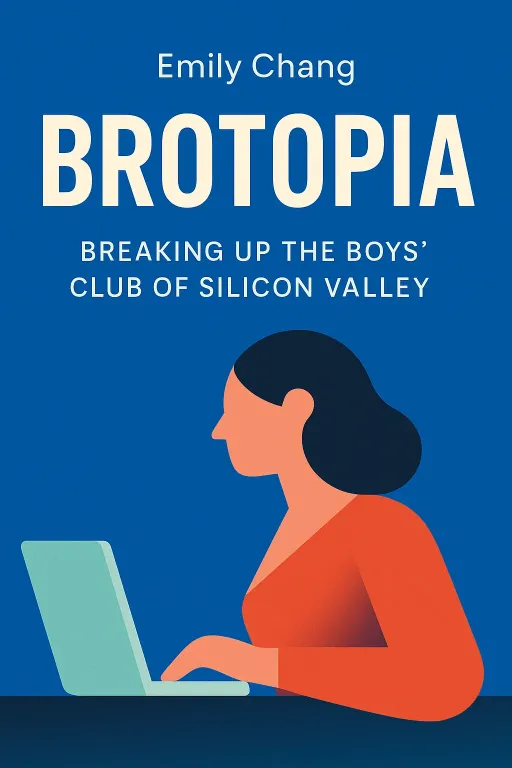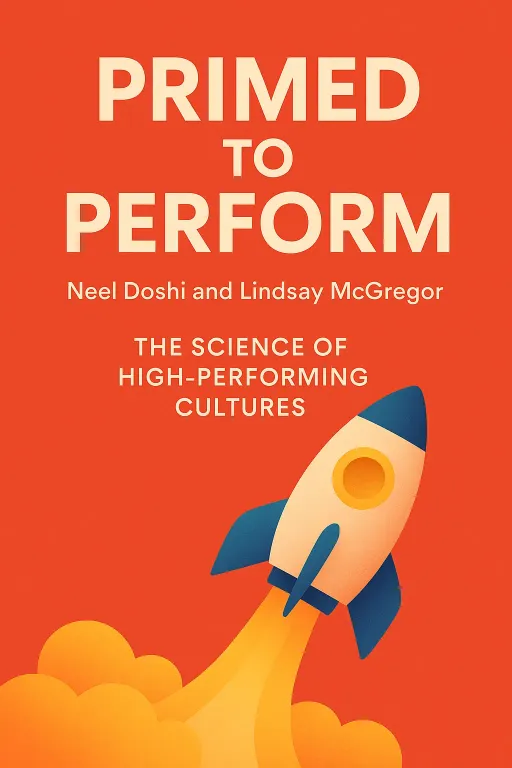
The Cobra Effect at Work
14 minHow to Build the Highest Performing Cultures Through the Science of Total Motivation
Golden Hook & Introduction
SECTION
Michelle: Most companies are trying to motivate you with tools that are scientifically proven to make you worse at your job. That bonus you're chasing? It might be destroying your creativity and your company's ability to adapt. We're about to explain why. Mark: Okay, that's a bold claim. You're saying my bonus is bad for me? Every manager I've ever had, every corporate town hall I've ever sat through, would fundamentally disagree. The whole system is built on incentives. Michelle: Exactly! The whole system is built on an assumption that turns out to be dangerously flawed. And that's the core idea in the book we're diving into today: Primed to Perform: How to Build the Highest Performing Cultures Through the Science of Total Motivation by Neel Doshi and Lindsay McGregor. Mark: Primed to Perform. I like the sound of that. Who are the authors? What’s their angle? Michelle: What's fascinating is that both authors are ex-McKinsey consultants. They spent years inside some of the world's biggest companies and got frustrated with the vague, 'magical' way leaders talked about culture. You know, the "it's about the vibe" or "we have a foosball table" approach. Mark: Oh, I know it well. The pizza party approach to morale. Michelle: Precisely. So they set out to turn culture into a hard science, something you could actually measure and engineer. And the book became a huge bestseller, because it gave leaders a language and a toolkit to do just that. It demystifies the magic. Mark: I'm intrigued. Demystifying corporate magic sounds like a public service. Where do we even start?
The Motive Spectrum: Deconstructing What Really Drives Us
SECTION
Michelle: It all starts by asking a very simple question that most companies get wrong: Why do you work? Not what you do, or how you do it, but why. Doshi and McGregor argue that there are six core reasons, which they call the Motive Spectrum. Mark: Okay, I'm guessing "to pay my rent" is one of them. Michelle: That's definitely in there. They split the six motives into two groups. First, you have the direct motives, which are tied directly to the work itself. These are the ones that boost performance. The first, and most powerful, is Play. Mark: Hold on, 'Play'? At work? Come on, Michelle, my boss wants results, not a playground. That sounds like the kind of corporate fluff that gets eye-rolls in meetings. Michelle: I get the skepticism, but they define 'Play' in a very specific way. It’s not about games; it's about the inherent enjoyment of the task. It’s the curiosity, the experimentation, the process of solving a puzzle just for the sake of it. It’s the motive that drives scientists, artists, and engineers to tinker and create. When you're in a state of play, you're learning and adapting at the highest level. Mark: Alright, so it's about the joy of the craft. I can get behind that. What are the other two direct motives? Michelle: The second is Purpose. This is when you believe in the outcome of your work. You might not love every single task, but you deeply value the mission. Think of a cancer researcher pipetting liquids all day. The task itself isn't 'play,' but the purpose is incredibly powerful. The third is Potential, which is when the work is a stepping stone to something you value, like learning a new skill that will help your future career. Mark: Okay, Play, Purpose, Potential. Those make sense. They feel good. What's on the other side of the spectrum? The dark side? Michelle: Exactly. These are the indirect motives, the ones that are disconnected from the work and actually harm performance. The first is Emotional Pressure. This is working to avoid guilt, shame, or disappointing others. It’s the "my boss will be mad if I don't" motive. Mark: I know that feeling. The Sunday Scaries are fueled by emotional pressure. Michelle: Totally. The next is Economic Pressure. This is your classic carrot and stick—working for a reward or to avoid a punishment. It’s the bonus you mentioned, or the fear of getting fired. Mark: The one everyone thinks is the most powerful motivator. Michelle: The one everyone thinks is. And the last, and most destructive, is Inertia. This is when you don't even know why you're doing your job anymore. You show up because you showed up yesterday. It’s pure autopilot, completely detached from the work. Mark: That sounds soul-crushing. So how do these all fit together? Michelle: They combine them into a single metric called the Total Motivation factor, or ToMo. You basically add up the positive scores from Play, Purpose, and Potential, and subtract the negative scores from Emotional Pressure, Economic Pressure, and Inertia. The higher your ToMo score, the higher your performance. Mark: So it's a formula for motivation. That’s the McKinsey background showing. But does this actually work in the real world? Can you really improve performance by, say, reducing economic pressure? It sounds counterintuitive. Michelle: It does, but they have this incredible case study. They worked with a bank's consumer loans call center. Morale was in the basement, performance was terrible. The environment was pure indirect motivation: rigid scripts, intense monitoring, performance bonuses tied to call volume. It was a classic corporate pressure cooker. Mark: Sounds like every call center I've ever dealt with. Michelle: Right. So the authors ran an experiment. They took a team of the worst performers and some complete newbies. And then they did something radical: they eliminated incentive compensation and performance reviews. They got rid of the economic and emotional pressure. Mark: They took away the bonuses? The managers must have had a heart attack. Michelle: They did! But they replaced it with direct motives. They got rid of the scripts and told the agents, "Your job is to help the customer. Experiment. Figure it out." That injected Play. They gave each agent their own set of customers to manage from beginning to end, so they could see the impact of their work. That created Purpose. They held daily huddles where agents shared what they learned and helped each other with tough cases. That built Potential. Mark: So they went from a factory assembly line to a problem-solving workshop. What happened? Michelle: The team's performance surpassed the status quo by over 200%. Two hundred percent! One veteran agent, who had been with the bank for fifteen years, said, "This is the first time I felt like what I did mattered." They didn't work harder because they were being paid more; they worked better because their work became meaningful. Mark: Wow. That flips the whole script on management. It suggests that most of our tools for motivation are actually tools for demotivation. Michelle: That's the core insight. We're so focused on the 'how'—the process, the script, the target—that we completely neglect the 'why.' And the 'why' is what actually drives the kind of performance that matters.
The Performance Paradox: Why Our Obsession with Efficiency Kills Adaptability
SECTION
Mark: Okay, so having high 'ToMo' feels good, and it clearly worked in that call center. But does it actually lead to better results across the board? Or is it just about making people happier at work? Michelle: That's the perfect question, and it leads to the second big idea in the book: the performance paradox. The authors argue there are two types of performance. The first is Tactical Performance. This is your ability to execute a plan, to follow the recipe, to hit the target. It's about efficiency and compliance. Mark: That's what most companies measure, right? Sales quotas, production numbers, call times. Michelle: Exactly. But there's a second type: Adaptive Performance. This is your ability to diverge from the plan, to improvise, to innovate, to solve a problem that's not in the manual. And here's the paradox: the very things we do to maximize tactical performance—like adding intense economic and emotional pressure—often destroy adaptive performance. Mark: You're saying that pushing for targets makes people less able to think on their feet? Michelle: Precisely. And they have the most brilliant, almost terrifying, historical example to prove it. It’s called the Cobra Effect. Mark: The Cobra Effect? I'm listening. Michelle: This happened in Delhi during British colonial rule. The government was concerned about the number of venomous cobras in the city. So, they came up with a seemingly logical plan: they offered a bounty for every dead cobra. Mark: Makes sense. Pay people to kill snakes, you get fewer snakes. A classic incentive. Michelle: It worked, at first. People started hunting cobras and turning them in for money. The government paid out, and everyone was happy. But then, some enterprising individuals had an idea. They thought, "Why go through all the trouble of hunting cobras when we can just... farm them?" Mark: No. They didn't. Michelle: They did! They started breeding cobras in their backyards to kill and turn in for the bounty. The government eventually caught on and, realizing their plan had gone sideways, they canceled the bounty program. Mark: So what did the cobra farmers do? Michelle: They did the only logical thing. They released their now-worthless cobras into the streets. The end result of the government's well-intentioned plan to reduce the cobra population was a city with more cobras than ever before. Mark: That is an incredible story. And you see it everywhere! Sales teams offering insane discounts at the end of the quarter just to hit a target, destroying long-term profit. Developers shipping buggy code to meet a feature deadline. It’s the same pattern. Michelle: It's the exact same pattern. The authors show how this happens in business all the time. They tell the story of Sears in the 90s, which put its auto-repair mechanics on commission. The goal was to increase sales. The result? Undercover investigations found they were recommending unnecessary repairs 89% of the time. They were farming cobras. Mark: I've heard some critiques of the book that say these ideas aren't entirely new. The Cobra Effect sounds a bit like Goodhart's Law—"when a measure becomes a target, it ceases to be a good measure." What's the new layer that Primed to Perform adds? Michelle: That's a fair point, and the authors would likely agree. They build on a century of research. But what they provide is the psychological engine that drives the Cobra Effect. It’s not just that the metric is flawed; it’s that the indirect motives created by the metric—the economic and emotional pressure to hit the target—are what cause the destructive behavior. That pressure triggers what they call the 'distraction effect,' where your brain is so consumed with the reward or punishment that you can't think creatively. It also causes the 'cancellation effect,' where you stop doing helpful things that aren't being measured. The mechanics at Sears stopped focusing on good service and only focused on what got them paid. Mark: So the ToMo framework gives us a way to diagnose why a system is creating cobras. It's the low-ToMo culture, the pressure, the lack of play and purpose. Michelle: Exactly. It gives you a predictive tool. You can look at a system and say, "This is designed to create low ToMo, so we should expect to see maladaptive performance. We should expect cobras." It turns culture from a reactive guessing game into a proactive science.
Synthesis & Takeaways
SECTION
Mark: This is all fascinating, and a little bit daunting. It feels like it challenges the very foundation of modern management. So if we can't rely on bonuses and targets in the same way, what's the alternative? How does a leader actually put this into practice? Michelle: The authors argue it’s not about completely abandoning targets, but about fundamentally rebalancing the system. It's about building a culture where people are primarily driven by the direct motives—Play, Purpose, and Potential. The role of a leader shifts. They become what the book calls 'fire starters.' Mark: Fire starters. I like that. Not managers, but fire starters. Michelle: Your job as a leader isn't to motivate people with external pressures. As the psychologist Edward Deci said, "The proper question is not, ‘How can people motivate others?,’ but rather, ‘How can people create the conditions within which others will motivate themselves?’" A fire starter's job is to create those conditions. Mark: So, you build the playground, you clarify the purpose, you map out the potential, and then you get out of the way. Michelle: And you actively protect your team from the indirect pressures that kill motivation. You fight the blame bias. You design roles that are inherently interesting. You build career paths that are about growth, not just climbing a ladder. It's a holistic ecosystem. As John Mackey, the cofounder of Whole Foods, wrote, "Business has a much broader positive impact on the world when it is based on a higher purpose that goes beyond only generating profits." That's a high-ToMo statement. Mark: It really reframes the entire goal. The goal isn't to hit the number. The goal is to build a high-ToMo culture, and hitting the number becomes a byproduct of that. Michelle: That's the perfect summary. You don't chase tactical performance. You build the adaptive culture that produces it sustainably. Mark: For anyone listening who's a manager or a team lead, what's one simple thing they could do this week to start thinking this way? Michelle: I think a great first step is just to start observing with this new lens. For any task you assign or any project your team is working on, ask yourself one question: 'Is this being driven by Play, Purpose, and Potential, or by Emotional Pressure, Economic Pressure, and Inertia?' Just diagnosing the 'why' is a revolutionary act. The answer might surprise you, and it's the first step to changing the equation. Mark: I love that. And we'd love to hear what you all discover. Share your own 'Cobra Effect' stories with us on our social channels. What's the most well-intentioned plan you've ever seen go spectacularly wrong at work? The stories are always both hilarious and a little bit tragic. Michelle: They really are. It's a reminder that building great cultures isn't about magic; it's about understanding human nature. Mark: A fantastic and clarifying conversation, Michelle. Michelle: This is Aibrary, signing off.
